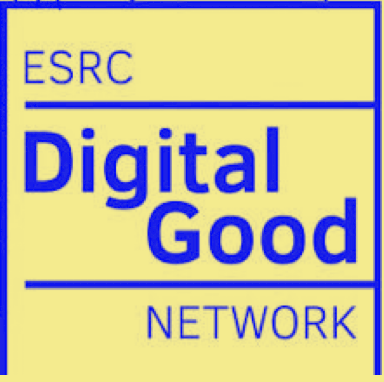Transcript of a talk by Jennifer Shaw, Research and Implementation Assistant, Digital Makers
I’m Jen and I work on the Digital Makers project at Born in Bradford.
As I’m sure you are all aware, we are living through an industrial revolution where technology is advancing at an extremely fast rate and it’s becoming increasingly important that we keep up with technology and that we are involved with new technology. In relation to this an observation that
we have made (at Digital Makers) is that the ability to effectively interact with digital technologies will be the key factor in determining social mobility over the next decade. This is in the same way as the ability to read determine life prospects 200 years ago.

In relation to this we are noticing that there is an increasing gap between those who have and those who don’t have and that is the digital divide and recognising this underlies some of the work that we are doing in Bradford. (The large-cohort study) Born in Bradford provides a platform to be able to explore this. So for those of you who don’t know what Born in Bradford is, it’s one of the largest longitudinal studies in the world. It tracks the lives of over 40,000 individuals in Bradford and we take a wide variety of measures from our participants, ranging from socio demographics and also health measures and the overall aim is to understand what makes the people in Bradford happy and healthy so we can hopefully implement changes within the city to overcome some of the issues related to this in the area.
The Born in Bradford cohort gives us access to large amounts of data and this is a great platform to be able to explore some of the kind of digital aspects within this study.
The opportunity that we have is very unique and it’s to be able to empower children and young people of Bradford to develop the confidence and the skills that they need to access and thrive in a digitalised society. So the overall aim is for children and young people to increase their digital skills. We also want them to feel more empowered and more confident if they want to access tech or digital industries.
Digital Makers takes this kind of whole systems approach shown by this diagram:

We target things like the digital divide, programming skills, the impacts of computing, some of the ways we do this is through the code clubs, hackathons, stuff like this. And of course we also take into account important factors, like ethnicity, gender, disability and some of these factors are particularly important to consider within Bradford due to the high levels of diversity that exist there.
We work with a very large range of organisations, nationally and internationally, and one of our key partners is the Raspberry Pi Foundation. Overall we have this whole systems approach working with lots of different organisations in order to tap into different areas and make sure that we are considering everything that we need to. To do this we are embedded within Bradford’s local digital strategy and ultimately also feeds into the Bradford 2025 City of Culture awards, which will help put Bradford on the map and help others understand the kind of prospects and opportunities that exist within Bradford.

I am going to talk briefly about some of the stuff that we are doing at Digital Makers. One of the first things is our coding clubs, which we’ve recently received some funding to expand within Bradford and these are going to be embedded within the Community because we know that we need to probably tailor these coding clubs to the specialised needs within each community in Bradford. We’ve already identified some underserved communities in Bradford, where we will implement the coding clubs, and we’re going to tailor the needs of each community to these coding clubs. The long term goal of this is that we can implement these coding clubs in collaboration with Raspberry Pi and in this way they can run even in our absence over time and then we are also developing a sustainable framework.

Something that we really emphasise in these coding clubs is the idea of co-production because we feel that children and young people should be put at the heart of all of the work that we do. So we’re going to be having coding co-production sessions soon where young people work with key stakeholders in the area.
We also have virtual reality learning experiences. So one of the things that we have developed is Born in Bradford data visualisation application.This allows anyone that uses the application to visualise the large datasets that we have in Born in Bradford in this immersive way. This responds to the fact that particularly for children and young people it can be hard to grasp the idea of these large datasets. So by by using the VR technology, it gives children and young people a bit of a better understanding of the power of data and also of hopefully encourages children to be interested in this kind of thing.
We can also use the application to communicate the work that we do in Bradford to external people. It’s a really useful application for doing that.
Finally, we have our Citizen Neuroscience workshop.

The are classroom-based workshops aimed at young secondary students in which they use state-of-the-art neuro-technology to see their brains in action.
Not only is it rfun and engaging for them because they actually get to see their brain waves in real time while they are undertaking reaction time tests or resting state tasks, it’s also useful to us because they help advance our scientific understanding of brain development and help us to learn about AI and future brain computer interfaces.It also gives students a bit more of an interest in neuroscience.
